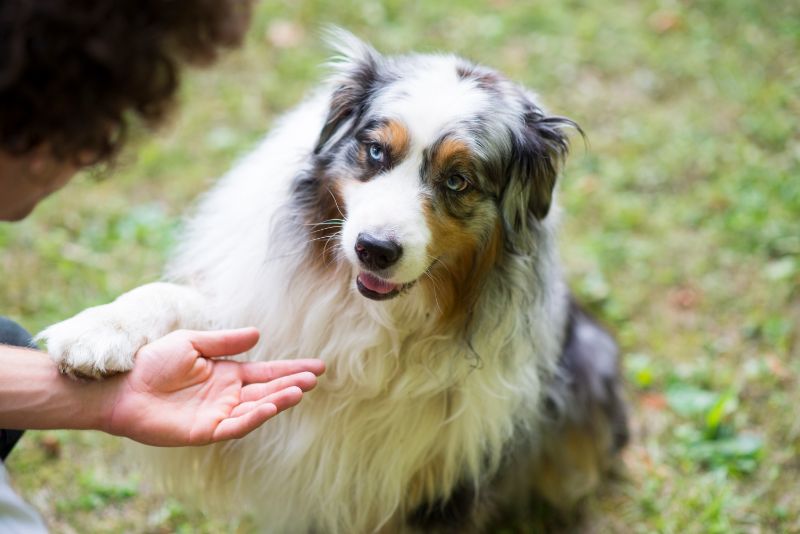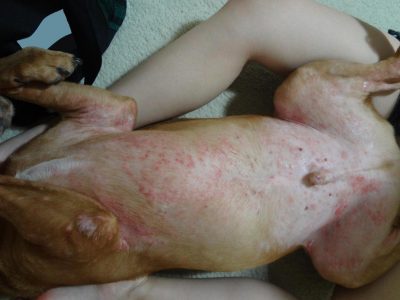Pancreatitis in Dogs: Talking Turkey

It’s the holiday season, and nothing says family like Thanksgiving dinner. And since over 70% of pet owners consider their pets family, it’s only natural to want to include them in any planned holiday celebrations, including sharing the holiday feast.
But while you’re at the table (and during the prep and clean-up, too), it’s essential to remember that our pets may experience GI upset, diarrhea, and vomiting – or worse – from partaking in the holiday meal with us. Ingestion of fatty foods and even any sudden change in diet can cause a painful condition called pancreatitis.
Continue…Diabetes in Pets

It’s pet diabetes month, and what better way to focus on this common issue in cats and dogs than with help from your Felton Veterinary Hospital team? When we think about diabetes, our pets may not be at the top of our minds, but this debilitating disease is rising in both people and pets alike. According to Banfield Pet Hospital’s 2016 State of Pet Health Report, diabetes in dogs increased by nearly 80 percent from 2006 to 2015.
Diabetes is more common in middle-aged and older pets, but any pet can be affected. In addition, the disease commonly leads to other conditions, such as heart, kidney, and liver disease and cataracts. So pet owners must be aware of the risks and signs of diabetes in pets and how to prevent this disease from affecting their beloved pet.
The good news is that with early detection, you and your veterinarian can successfully manage the disease through diet, exercise, regular monitoring, and treatment. With mindful interventions, pets with diabetes can still live healthy, long lives.
Continue…Bringing Home A New Puppy: 9 Tips to Prep Your House

Bringing home a new puppy is an exciting time, but can also be stressful if you’re not prepared. From puppy-proofing your house to starting potty training the right way, it’s easy to become overwhelmed with your responsibilities in order to make your puppy’s transition a success.
With all the excitement and anticipation around welcoming your puppy home, it’s easy to forget important steps. But, preparing your home and your family for your new arrival can put you on track and ensure a happy dog for years to come. We’ve asked experts across the country, from Orlando, FL to Portland, OR, to share their best tip for bringing home a puppy.
Continue…Your Go-To Guide for Adopting a Shelter Pet

You’re ready to adopt a new pet! Congratulations. Of course, your first thought is probably to check out our local shelter, and we couldn’t agree more. Shelters and rescue organizations have many loving and wonderful pets of every size, shape, and personality just waiting for their forever homes.
Adopting a shelter pet is most successful if a little planning and preparation takes place before you set foot in the building. Felton Veterinary Hospital is ready to be your tour guide along the journey of adopting a shelter pet.
Continue…Keep The Feast on the Table, Not Under It…And Other Thanksgiving Pet Safety Tips

Anyone who has pets knows the pain of resisting puppy dog eyes at the dinner table. As cute as they are, our pets often win the battle on that one. But when it comes to Thanksgiving safety for pets, it’s important to understand the risks and repercussions of giving in.
But letting your pet partake in the feast is not the only risk to their health around the holidays. Keep reading for Felton Veterinary Hospital’s best tips for Thanksgiving pet safety, and avoid an emergency room visit on this, the most festive of holidays.
Continue…Chigger Season is Here -What You Need to Know

If you’ve ever taken a walk with your dog in the woods or through a field, only to have your best friend scratching up a storm for the next several days, she might have experienced a chigger attack.
In cats, chiggers are most commonly found around the ears and between the toes, but can be found almost anywhere on the body. Because of intense itching caused by these mites , your cat may chew or scratch itself, causing self-inflicted wounds. The resulting skin lesions vary from crusted spots to areas of hair loss to raw moist bleeding areas.
These tiny orange – red mites (also known as Harvest mites) reside in grass and underbrush during September through January in the Santa Cruz Mountains. They are so small that you might not even notice them on your dog or cat but, once they become a source of itchy discomfort, they’re difficult to ignore.
Continue…

 Schedule an Appointment
Schedule an Appointment